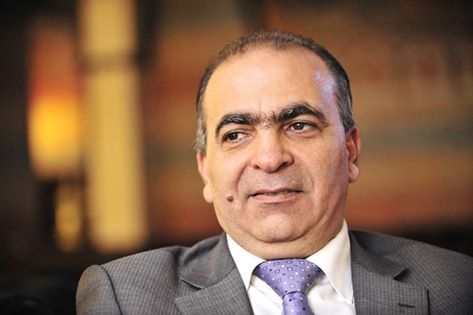The haze surrounding the Syrian issue, resulting from the great diversity of local and regional forces influencing the situation, has led to many overstatements by political analysts, politicians, and even ordinary Syrians, both in relation to the fears and dangers threatening Syria, and to the hopes Syrians have built as a result of the revolution they have paid dearly for to realize their national aspirations and improve their living conditions.
Expectations differ even among pragmatic political analysts unaffiliated with any side in the conflict (those who are affiliated with one side may work to promote this side’s point of view, out of sympathy or simply due to financial incentive). This is a result of the inability to completely rid their analyses and conclusions of wishful thinking.
It is possible to divide these exaggerations into fears and dangers, as well as hopes adopted by some about the results of the revolution.
Here, I will try to refute the exaggerations related to fears and dangers that are unlikely to happen in Syria:
First, partition: Syria will not be partitioned for the following reasons:
1 — There are no separatist tendencies among any Syrian social elements, except for some of our Kurdish brothers, who will soon find this will not be allowed at the present stage and that insisting on it will be harmful to all Syrians.
Furthermore, nothing has been issued by the regime or by its spokespeople or by its many mouthpieces in the Arab world, especially Lebanon, to suggest the presence of any separatist desires. The Assad regime — despite everything that has been published about the family’s affiliation to a specific sect — does not believe in sects or religions (differing completely from Lebanon’s Hezbollah militia and the clerical Iranian regime). It is a mafia with a diversity of sectarian and confessional affiliations. The investments of its most influential figures are in Damascus, Aleppo and Homs in far greater quantities than in areas with which they are affiliated by region or sect. Furthermore, the desire of the Little Tyrant is to regain everything he considers an estate inherited from his father, preventing his complacency with only a part of it.
From another angle, the armed groups on the ground — most of which have adopted an Islamist ideology, some relatively moderate, and some extremist, like Nusra Front and Islamic State — dream of a state which goes beyond the borders of Syria to the borders of the Arab and Islamic world, while the factions of the Free Syrian Army have from the beginning adopted the Syrian independence flag, a symbol of a territorially complete Syria.
Furthermore, regime and opposition forces are fighting across all Syrian territory, for control over all of it.
2 — There is no regional or international interest in partition because it would threaten the national security of a number of countries in the region. This is what explains the Russian intervention, regionally and internationally understood to be an attempt, along with regime forces and supporting militias, to regain control over all Syrian regions controlled by the opposition described as “moderate”, while the Western-Arab coalition tries to undermine Baghdadi’s caliphate and expel his militants from other areas in Syria and Iraq.
It is also clear that Turkey will work with everyone it can to rein in some of the Kurdish militias which are driven by separatist tendencies, which Iran also will not accept.
Second, the possibility that Assad’s mafia will regain complete control over Syria and take revenge on the Syrian people:
There is not one indicator leading me to believe this is possible. The Syrian people, in all their classes and orientations, including those who still support tyranny out of fear of a worse alternative represented by ISIS and Nusra, can no longer tolerate the idea of corrupt and authoritarian regimes whose injustice and corruption and lack of national membership becomes well known the moment it feels a threat to its authority and the interests of its influential figures.
They will always be ready to launch revolutions against them if the conditions exist, and especially if Syrians are able through their awareness and through helping those affected by repressive organizations to expel ISIS and Al-Qaeda from Syria’s territory and the minds of its youth.
There is also no realistic chance the regime will be able to eradicate all its opposition, no matter what Iranian or Russian support it receives, because that would lead to Syria falling completely under Iranian hegemony — something no neighboring country would permit, including Israel, which is happy to see Syria destroyed — or would transform Syria into a base for the Russian tsar who aspires to a regional hegemony that the great powers will not allow him to obtain, even if they accept his role as a free tool to keep Syria from falling into the hands of what they consider their enemies, specifically Iran or the jihadi Islamist factions of various types.
Third, the possibility Syria will fall into the hands of radical Islamist organizations or the establishment of a jihadi Islamist regime or any form of theocracy not ensuring the equality of all Syrians before the law and constitution:
For the reasons noted in the previous two sections, and represented by the fact that this possibility is rejected by most Syrians, all regional countries and the international community because it would turn Syria into a hotbed of tensions and endless wars in the region.
Of course, none of this lightens the horror of the disaster that Syrians are living through, the prospect it could continue for a long time, along with the gravity of its destructive effects on Syria, its people, and its social fabric.
Responsibility for the information and views set out in this article lies entirely with the author.


